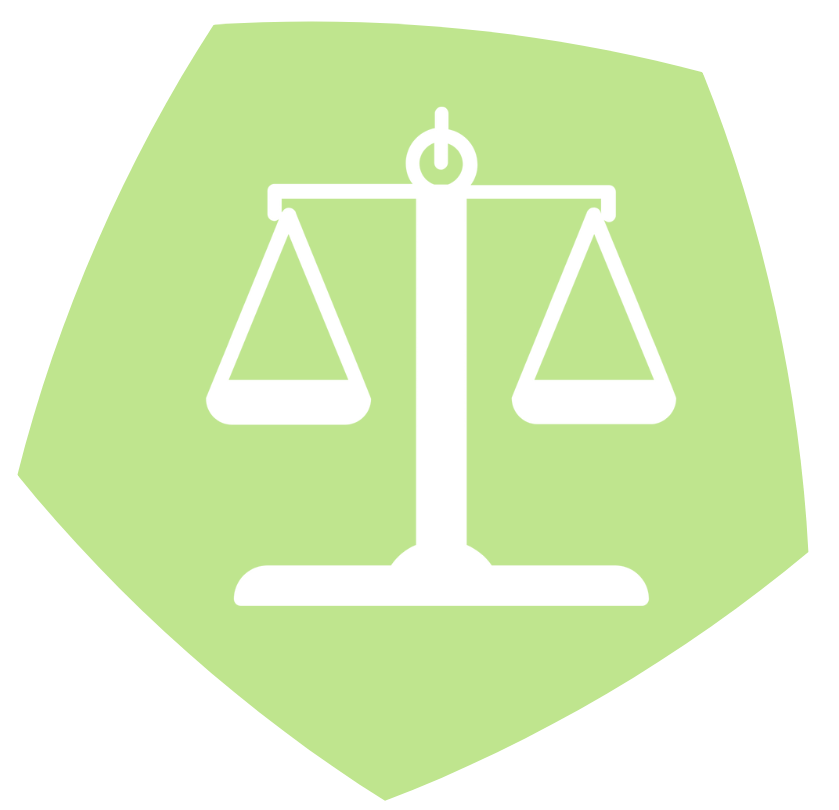Academic Integrity:
Your personal and professional conduct

Honesty
Being truthful is the foundation of integrity. Ideas that are not your own must be clearly identified and acknowledged

Trust
Being reliable and trustworthy in your academic work by following the guidelines and policies set by the school and by producing honest, thoughtful, and genuine work

Fairness
Being equitable, transparent, and impartial by producing your own original works and acknowledging borrowed ideas

Respect
Showing respect to other members of the academic community by valuing opportunities to gain knowledge and by crediting the works of others

Responsibility
Being responsible and accountable for your actions and those of others by understanding what is required of you and standing up against wrongdoing

Courage
Being courageous and acting according to our own values and the values of the institution to stand up against wrongdoing despite a risk of negative consequences
Contact us:

The Library & Information Services team:
The Learning Support team:
Academic Integrity Games
![]()
Academic Integrity:
Your personal and professional conduct

Honesty

Trust

Fairness

Respect

Responsibility

Courage
Contact us:
The Library & Information Services team:
The Learning Support team:
Academic Integrity Games
![]()
The International Center for Academic Integrity (ICAI)

The International Center for Academic Integrity (ICAI) was founded in 1992. Its mission includes the cultivation of cultures of integrity in academic communities throughout the world. ICAI’s core beliefs focus on the six Fundamental Values of Academic Integrity: honesty, trust, fairness, respect, responsibility, and courage. These values serve as a touchstone for ICAI and its members.
GIHE joined ICAI in 2022 to uphold and strengthen our culture and reputation for Academic Integrity.
Recently, they have released the following Statement on Academic Integrity and Artificial Intelligence.
Honesty

Being truthful is the foundation of integrity. Ideas that are not your own must be clearly identified and acknowledged.
According to ICAI, (2021, p. 5), ways to demonstrate honesty are:
· Being truthful
· Giving credit to the owner of the work (i.e., musician, author, artist, speaker, etc.)
· Keeping promises
· Providing factual evidence
· Aspiring to objectivity, consider all sides and one’s own potential preconceptions
Trust

Being reliable and trustworthy in your academic work by following the guidelines and policies set by the school and by producing honest, thoughtful, and genuine work.
According to ICAI (2021, p. 6), ways to demonstrate trust are:
· Clearly state expectations and follow through
· Promote transparency in values, processes, and outcomes
· Trust others
· Give credence
· Encourage mutual understanding
· Act with genuineness
Fairness

Being equitable, transparent, and impartial by producing your own original works and acknowledging borrowed ideas.
According to ICAI (2021, p. 7), ways to demonstrate fairness are:
· Apply rules and policies consistently
· Engage with others equitably
· Keep an open-mind
· Be objective
· Take responsibility for your own actions
Respect

Showing respect to other members of the academic community by valuing opportunities to gain knowledge and by acknowledging others’ works.
According to ICAI (2021, p. 8), ways to demonstrate respect are:
· Practice active listening
· Receive feedback willingly
· Accept that others’ thoughts and ideas have validity
· Show empathy
· Seek open communication
· Affirm others and accept differences
· Recognize the consequences of our words and actions on others
Responsibility

Being responsible and accountable for your actions and those of others by understanding what is required of you and standing up against wrongdoing.
According to ICAI (2021, p. 9), ways to demonstrate responsibility are:
· Hold yourself accountable for your actions
· Engage with others in difficult conversations, even when silence might be easier
· Know and follow institutional rules and conduct codes
· Create, understand, and respect personal boundaries
· Follow through with tasks and expectations
· Model good behavior
Courage

Being courageous and acting according to our own values and the values of the institution to stand up against wrongdoing despite the risk of negative consequences.
According to ICAI (2021, p. 10), ways to demonstrate courage are:
· Be brave even when others might not
· Take a stand to address a wrongdoing and support others doing the same
· Endure discomfort for something you believe in
· Be undaunted in defending integrity
· Be willing to take risk and risk failure
Further resources:

The following is a selection of resources to…
Books
Eaton, S. E., Christensen Hughes, J. (Eds.). (2022). Academic integrity in Canada: Ensuring and essential challenge. Springer. https://link.springer.com/content/pdf/10.1007/978-3-030-83255-1.pdf?pdf=button
Articles
Bretag, T. (2017, October). Good practice note: Addressing contract cheating to safeguard academic integrity. TEQSA. https://www.teqsa.gov.au/sites/default/files/good-practice-note-addressing-contract-cheating.pdf
George, T., & Caulfield, J. (2022, March 10). Academic integrity vs. academic dishonesty. Scribbr. https://www.scribbr.com/plagiarism/academic-dishonesty/
International Center for Academic Integrity [ICAI]. (2021). The fundamental values of academic integrity (3rd ed.). www.academicintegrity.org/the-fundamental-values- of-academic-integrity
Websites
International Center for Academic Integrity (2022). https://academicintegrity.org/
The Quality Assurance Agency for Higher Education. (n.d.). Academic integrity. https://www.qaa.ac.uk/membership/membership-areas-of-work/academic-integrity#
